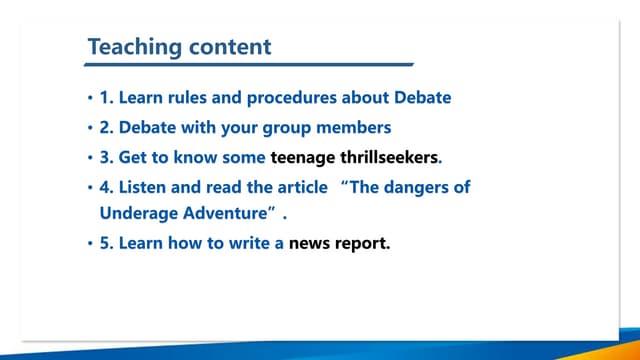Physician associate news has become increasingly significant in the UK healthcare system, reflecting both the growth of the profession and the challenges it faces. Recent reports have highlighted concerns about patient safety, professional titles, and regulatory oversight. Staying updated with the latest physician associate news ensures both healthcare professionals and patients understand the evolving role of PAs.
The focus of physician associate news today is not only on the profession’s expansion but also on debates regarding its recognition, supervision, and responsibilities. Incidents of misdiagnosis have amplified discussions around training requirements and clarity of the PA role. By following physician associate news uk updates, readers gain insights into both policy changes and practical implications within NHS settings.
What Are Physician Associates?
Physician associates are healthcare professionals trained to support doctors in diagnosing and treating patients, but they do not possess independent prescribing rights. Recent physician associate news uk highlights their vital role in hospitals, GP surgeries, and other NHS services. PAs perform examinations, manage patient care, and provide continuity in often overstretched medical teams.
Training for physician associates involves a two-year postgraduate programme combining medical theory and supervised clinical practice. Recent GMC physician associate news reports emphasise standardisation across UK institutions to ensure PAs deliver safe, effective care. Physician associate news today often focuses on their growing importance in alleviating NHS pressures while maintaining high standards of patient care.
Recent Developments in the UK
Recent physician associate news uk latest reports have centred on a government-ordered review recommending changes to the PA profession. The review suggests renaming physician associates to reduce public confusion with doctors, introducing clear uniforms, and enforcing closer supervision in clinical environments. These recommendations aim to enhance patient safety and strengthen public trust.
High-profile incidents have driven discussions in physician associate news today, including cases where patients were misdiagnosed or treated without adequate oversight. Healthcare authorities are now implementing measures to address these issues while balancing the need for a growing workforce. Physician associate news uk updates consistently cover how policy changes impact NHS practices and patient outcomes.
Debates Over Title and Role

The debate over the physician associate title has been central in recent news coverage. Proponents of changing the name argue that it helps the public distinguish between PAs and fully qualified doctors, reducing the risk of misunderstanding. Opponents claim that a title change could undermine professional recognition and disincentivise potential recruits.
Physician associate news also examines the potential consequences on patient care and NHS efficiency. Restricting the scope of PAs or introducing stricter supervision may improve safety but could slow down services in high-demand areas. UK healthcare leaders must carefully weigh these factors, ensuring policy changes protect patients without compromising access to care.
Global Context and Comparisons
Physician associate news uk is increasingly informed by international developments. In the United States, PAs enjoy greater autonomy, including prescribing rights in many states. The profession is expected to grow by 28% between 2023 and 2033, reflecting strong career prospects and increasing demand.
Comparing UK and US practices allows physician associate news today to provide insights into potential improvements. Lessons from international systems inform training programmes, supervision standards, and professional recognition. By evaluating global trends, physician associate news uk can help shape a robust, well-regulated profession that meets both patient and workforce needs.
Training, Supervision, and Career Progression
Training and supervision remain central themes in physician associate news. Proposed measures include extended hospital placements, mandatory lanyards and uniforms, and closer oversight by senior doctors. These steps aim to improve patient confidence, enhance professional accountability, and standardise care quality across NHS services.
Career progression is another focus of physician associate news uk latest coverage. While PAs cannot yet prescribe independently, structured pathways into specialist roles and leadership positions are being explored. These developments ensure that the profession remains attractive, enabling the NHS to retain highly skilled personnel and continue meeting the healthcare needs of a growing population.
Patient Safety and Professional Accountability
Physician associate news highlights ongoing concerns regarding patient safety. Several high-profile misdiagnosis cases have prompted calls for stricter regulation, clearer job descriptions, and improved public communication about the PA role. These steps are crucial to prevent further incidents and maintain confidence in NHS services.
Professional accountability is central to the discussion in physician associate news uk today. Ensuring that PAs receive proper training, supervision, and continuous professional development helps mitigate risks while recognising their essential contribution to patient care. Balancing responsibility and autonomy remains a key theme in shaping the future of the profession.
Future Outlook for Physician Associates
The future of physician associates in the UK is being shaped by policy, training, and workforce considerations. Physician associate news uk latest updates suggest a continued expansion of roles, with greater emphasis on safety, clarity, and professional recognition. These changes are expected to improve patient outcomes and integrate PAs more effectively into healthcare teams.
Physician associate news today also indicates that ongoing debates about titles and supervision will influence public perception and workforce planning. By staying informed with regular updates, healthcare professionals, policymakers, and patients can better understand the evolving landscape of physician associate practice and its impact on the NHS.
Conclusion
Physician associate news demonstrates the growing significance of PAs within UK healthcare. Recent developments, including title change debates, supervision improvements, and enhanced training, highlight the profession’s potential and the challenges it faces. Staying updated with physician associate news uk ensures awareness of policy changes, patient safety initiatives, and global trends influencing the role.
FAQs
What is a physician associate in the UK?
A physician associate is a trained healthcare professional who supports doctors in diagnosing and managing patient care, without independent prescribing rights.
Why is there a debate over changing the PA title?
The debate arises from patient safety concerns and public confusion, prompting proposals to rename the profession and clarify responsibilities.
Are physician associates allowed to see patients independently?
No, PAs in the UK work under doctor supervision and cannot see patients independently or prescribe medication.
How does physician associate training differ from medical training?
PA training is a two-year postgraduate course emphasising practical clinical experience, whereas medical training involves longer undergraduate and postgraduate pathways.
What are the latest updates in physician associate news today?
Recent news covers title changes, supervision rules, uniform requirements, and enhanced patient safety measures.
How does the UK PA system compare to the US?
UK PAs have less autonomy than US PAs, who may prescribe medication and practice with greater independence, but both systems reflect the growing importance of the profession.
Will title changes affect patient care or NHS waiting times?
Potentially, as stricter supervision and regulatory measures could slow service delivery, though patient safety remains the top priority.
Also Read: thomas kwan

